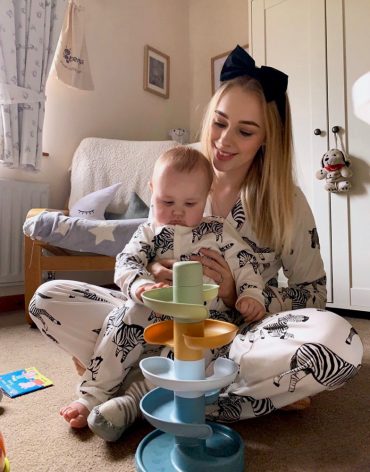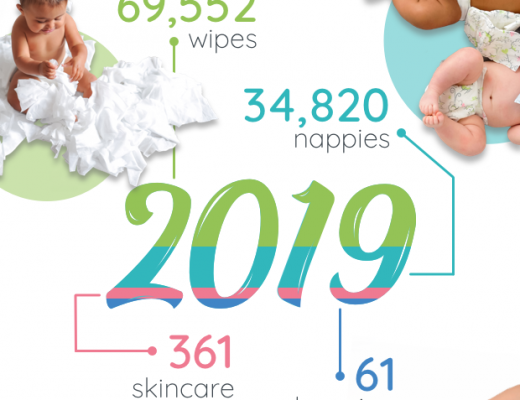Happy International Women’s Day to all the brilliant women that are reading this!
Every year on 8th March, International Women’s Day (IWD) is a global celebration of the achievements of women. A reminder to challenge gender stereotypes, call out discrimination and bias and support women to allow them to thrive. It’s also a chance to educate and raise awareness of the need for women’s equality, support female-focussed charities and lobby for change that helps women.
Let’s discuss the theme of this year’s IWD: #EmbraceEquity. First off, what do they mean by embrace equity? Let’s break the two down.
Equality means each individual or group of people is given the same resources or opportunities. They are equal.
Equity recognises that each person has different circumstances, and allocates the exact resources and opportunities needed to reach an equal outcome.
Equity can be defined as giving everyone what they need to be successful. In other words, it’s not giving everyone the exact same thing. If we give everyone the exact same thing, expecting that will make people equal, it assumes that everyone started out in the same place – and this can be vastly inaccurate because everyone isn’t the same.
Embracing equity within motherhood
As a company who have always supported and championed mums, and as a team of mums ourselves, we wanted to think about the challenges mum may face with inequity.
Women’s needs often change when they become a mum. And those needs are ever changing as they move through the various stages of parenting babies to older children. They also vary depending on their individual circumstances and economic background, support network (or lack of), whether they are a single parent household and external challenges they face.
Yet it often doesn’t feel like mums are given what they individually need to thrive.
First off there’s women’s health. The postpartum period can be difficult on women’s physical and mental health and it can be hard to get the right support fast. Not to mention other health conditions women may face, such as the effect of hormone changes, returning periods, heavy periods, endometriosis and perimenopausal to name only a few.
Then there’s crippling childcare costs in the UK effecting whether women can afford to re-enter the workforce. The charity Pregnant Than Screwed, who support and fight for the rights of pregnant women and mum’s, found that three-quarters of mum’s said their salary doesn’t cover the cost of childcare, making it pointless returning to work! And half of working mum’s had to reduce their hours because of childcare costs or lack or availability. No wonder that gender pay gap isn’t reducing or there’s still a lack of women in the top boardroom roles.
And if mum’s are able to work, the juggle to balance nursery or school runs around a typical 9-5 workplace is tough. Yes it’s getting better and some companies (like Mum & You!) do offer flexible working, part time, hybrid or remote roles. But there’s still many who don’t. Check out the work Anna Whitehouse, aka Mother Pukka, is doing with The Flex Appeal, lobbying for change in flexible working practices.

And then there’s the sudden overnight (and without us even realising and being prepared for it) household mental load that women often take on when they become a mum (remember Alice’s birthday, add toilet roll to next shop, book injections, need more nappies). And mum’s are usually the primary caretaker (more so if they are a single parent), decision maker and researcher into what’s best for their child (from how to wean, to how to potty train, what parenting style they want to be and how to discipline, what clothes to buy, planning and booking family activities etc). All these millions of tiny decisions in their heads at the same time as recovering from childbirth, getting to know this new baby, learning how to keep them alive and adjusting to life as mother. And if they need time out, it often needs planning in. Mums can quickly feel trapped, overwhelmed and burnt out.
If society, the workplace and beyond was geared to support and invest in mums in these tough early years (which in the grand scheme of life is such a short period of time), recognised the important role mums play in children’s early years development (the country’s future workforce!) and better helped and supported mum’s individual needs, wouldn’t that better everyone? Happier mum, happier child and a better society and economy now and for the future.
Discussing gender bias with children
International Women’s Day is also a time to challenge gender bias, and as we explored this in the realm of pregnancy and motherhood, we came across many conversations about ingrained gender stereotypes in children. Children can be affected by gender bias from a young age, through representation in books, TV and films, toys, hobbies and colours they ‘should’ like, clothes they can wear, language used (pretty girls and strong boys) which can impact who they become and roles and jobs they may aspire too. With many toys still being heavily advertised specifically for boys and girls, Danish toy company Lego made the decision to remove gender bias from its toys after a global poll of children and parents highlighted ingrained societal gender bias.
As parents, it’s hard to find the right language to explain such topics to our children.
How can we teach our children about perceived gender stereotypes?
Charity Save The Children shares five tips to encourage and equip parents and carers to have these conversations with children.
- Reflect on what you know and if you are reinforcing gender roles. Start by acknowledging that your own biases and lived experiences may influence how you talk to your children about such topics.
- Listen and encourage your child. What are the questions your child is asking? Do they feel that boys and girls or non-binary children are different in any way? Try to teach your child that all children (no matter their gender) are equal and their gender shouldn’t determine what they can achieve.
- Incorporate media and social media that doesn’t reinforce gender stereotypes. It is important to understand that what is displayed online or on TV can shape children’s views. Help diversify your child’s understanding of gender by finding TV shows, movies and role models that show kids the opposite of traditional gender norms.
- Correct misinformation. Correct misperceptions and misinformation about the perceived differences between boys, girls, and children who identify as non-binary. Help your child better understand that all children should have equal opportunities and rights, and we should treat everyone with respect and kindness.
- Be a good role model. Start having conversations with children about gender empowerment early and often. When you see gender discrimination, call it out and explain to your child why. The absence of positive expression or images matter as well, so model thoughtful, inclusive behaviour.
Rachel, our digital marketing manager, has some experience of this…
“My 3 year old son has two older sisters. I’ve always tried to buy a mix of toys and let them choose what they play with and like. But I was surprised when my toddler said that girls can’t play with lego, only boys. Already at a young age he had somehow been influenced to see a divide between boys and girls. I told him that both boys and girls like lego, toys are for everybody and the next day left some lego out for them to play with together”.
Whatever International Women’s Day, or this year’s theme, means to you, we hope you can take to reflect and celebrate your own or a woman’s achievements and give a woman you’re proud of a big ol’ squeeze (even if that’s yourself!). #EmbraceEquity.
If you have anything you would like to share with us, thoughts, opinions, or experiences, please do get in touch or leave a comment below – we love to hear from you!
Want to keep up to date with our future blogs like this one? Subscribe to our mailing list for more tips and special offers you surely won’t want to miss!







No Comments